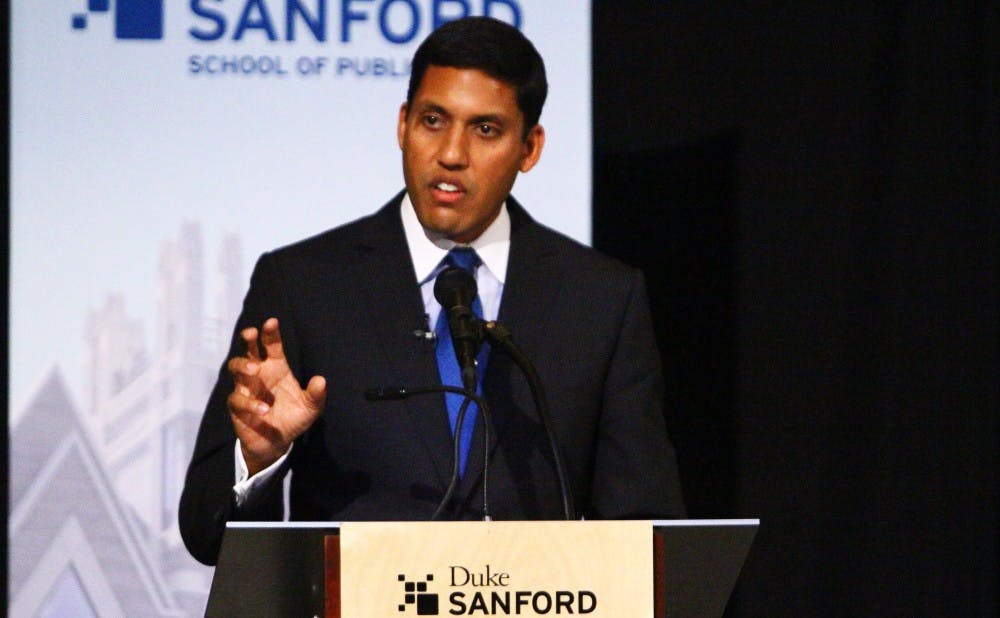During a time of changing global population structures, Dr. Rajiv Shah, administrator of the United States Agency for International Development, believes that universities like Duke will play an important role in international development.
At a lecture in the Sanford School of Public Policy Thursday evening, Shah emphasized that global development is a shared goal of Duke and USAID. He noted that USAID played an integral role in developing the global health major, the Social Entrepreneurship Accelerator program and various forms of research across campus.
“Duke was right at the top because of its incredible commitment to science, technology and innovation,” Shah said. “Duke’s researchers have set their sights on the most pressing questions of our time.”
Out of over 400 applicants, Duke was one of seven universities to be selected as part of USAID's Higher Education Solutions Network—a network of schools that have been instrumental in advancing new developments in science, technology and engineering.
He explained that shifting global demographics will directly impact America's economy and foreign affairs.
“For the first time in history, the number of the middle class will overtake those struggling to meet their needs,” Shah said. “The innovation economy must adapt to serve the global middle class. Cities we don’t talk about today are fast becoming the economic powerhouses of tomorrow.”
Five years ago, President Barack Obama set a number of goals for USAID including eradicating hunger, ending preventable child death and bringing access to electricity to parts of the world without it. In addition to these targets, the USAID has also aimed to increase its use of locally sourced solutions to resolve these issues, Shah said.
“Currently, 15 percent of our funding is devoted to local solutions. Our goal is to increase that to 30 percent,” Shah said. “We are trying to improve the way we implement development by being inclusive of local players."
He defined success in an initiative as "creating conditions where we can leave having built institutions that can replace us."
"The goal of helping the world has always seemed so abstract and unreachable but seeing the work Rajiv Shah has done and the opportunities Duke has to offer make the idea a lot more concrete and something attainable," first-year Jake Dooris said.
When asked how the agency encourages development without greatly influencing a country's sovereignty, Shah described the extensive steps taken to determine whether the planned action is appropriate for the region.
“We can’t help a country that doesn’t want to be helped,” Shah said. “If Tanzania isn’t willing to reform healthcare, we can’t force it upon them.”
Shah, who recently signed a memorandum with Wal-Mart promoting women’s empowerment, commented on the increased collaboration between public and private entities in encouraging foreign development.
“Even as recently as the 1990s, about 90 percent of the money flowing into these countries came from government backed investment, but now, less than 10 percent of the money is comprised by government donors," Shah said. "Today, the foreign direct investment for each government-backed dollar is 14 dollars from the private sector.”
Shah attributed most of this growth to small American businesses, which have the power to expand jobs at home while also creating opportunities abroad.
“We need to harness the private sector to take these ideas to real scale," Shah said. "The truth is that we work in a field that not only begs for your passion and your humanity but also your critical eye and analytical judgment. It’s a lot of hard work, but its deeply rewarding."
Shah added that much of the USAID staff feels a special connection to Duke.
“It seems like half of all of USAID is from Duke or bleeds blue in some way,” Shah said.
Get The Chronicle straight to your inbox
Signup for our weekly newsletter. Cancel at any time.

